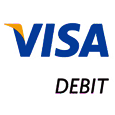
The European Accessibility Act (EAA) has ushered in a transformative phase for Europe’s iGaming industry, mandating that digital gambling platforms now fall within the scope of its accessibility regulations. With the gambling sector being one of the fastest-evolving digital markets, this new requirement significantly raises the bar for compliance, particularly in terms of accessibility, inclusivity, and technical functionality.
Effective now, all iGaming websites operating within the European Union must ensure they meet the EAA’s detailed requirements. This legislation, aimed at harmonizing accessibility standards across digital services, targets key industries that offer services through digital platforms — and online gambling, classified under “e-commerce,” is now officially among them.
Though the term “gambling” is not specifically named in the EAA’s language, platforms that involve user interaction and monetary exchange—such as placing bets or purchasing gaming credits—are covered by its stipulations. As users engage in transactional services remotely, these platforms fall squarely under the EAA’s definition of distance contracts.
This includes everything from the signing up and payment process to the actual gameplay. Features like payment processing, age verification tools, and self-exclusion options already align with several of the EAA’s consumer protection goals. However, further action is required to meet digital accessibility standards.


























































































































































.png)
